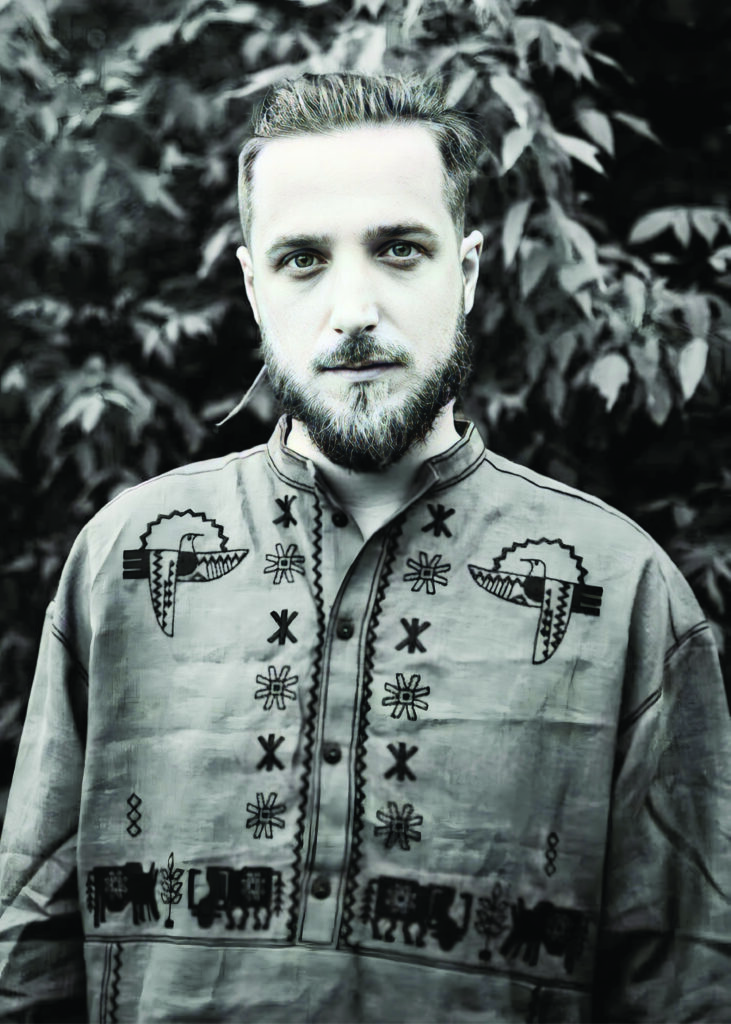Maksym Kryvtsov, a Poet at War
‘Only if I die in this war will I become a classic’, joked the poet and soldier Maksym Kryvtsov. This is one of the features of our literature today: writers become canonical authors in their thirties, often posthumously. While in other literatures respectable poets form a tradition around themselves, our gallery of black-framed portraits of unbearably young authors is growing bigger.
Maksym Kryvtsov was born in Rivne, Ukraine in 1990. He participated in the Revolution of Dignity and joined the army in 2014. Later, he worked at the YARMIZ Center for readaptation and rehabilitation in Kyiv and returned to the war in 2022, when the full-scale invasion began. Kryvtsov chose the call sign Dali because of his twisted moustache: visual art was also extremely important for him. The poet and paramedic Olena Herasymiuk remembers that Maksym painted his dugout with quotes and pictures. Art for us today is not put on hold, it continues at the frontline. Today Maksym’s poems are everywhere in Kyiv, even on the walls. Art took to the streets.
His only book, Poems from the Embrasure, was published in 2023. We already knew many of these texts from his Facebook page. The poem that begins with the words ‘My head rolls from windbreak to windbreak, like a tumbleweed’ appeared two days before his death. A day before he was killed, Maksym recorded a video of himself reading a poem by Vasyl Stus, a canonical twentieth-century poet. The Soviets killed Stus in 1985. Maksym was killed by Russia in 2023. The terrible tradition continues.
There were many teenagers at Maksym’s funeral in Kyiv. He had taught at a camp for kids called Striped Raccoons. In a truly Christological twist, Maks was always surrounded by children. When the coffin was being carried out of the cathedral, the air raid siren wailed. Hundreds of people knelt down to pay their last respects to the hero while the rockets were already flying in our direction from the neighbouring country.
I don’t know what better illustrates the civilisation gap between us and the Russians.
- Portrait from a personal archive, made by a friend thanks to Anastasia Khudaverdyan
Bogdana Romantsova is the editor of publishing projects at Tempora Publishing House and is a lecturer on literary courses run by the educational platforms Nobilitet, Prometheus, Cultural Project, and Litosvita for whom she also curates an annual course on creative writing. Romantsova is a literary critic for a number of magazines and journals including The Ukrainian Week, Lektüra, Chytomo, LB.ua, and Dwutygodnik. She is a jury member of the Prize of the President of Ukraine, Scholarship of the President of Ukraine and was formerly a Shevchenko National Prize expert. Romantsova’s essays and articles have been translated for Polish, German, Estonian, Swedish, Czech, and Japanese anthologies and foreign media.



